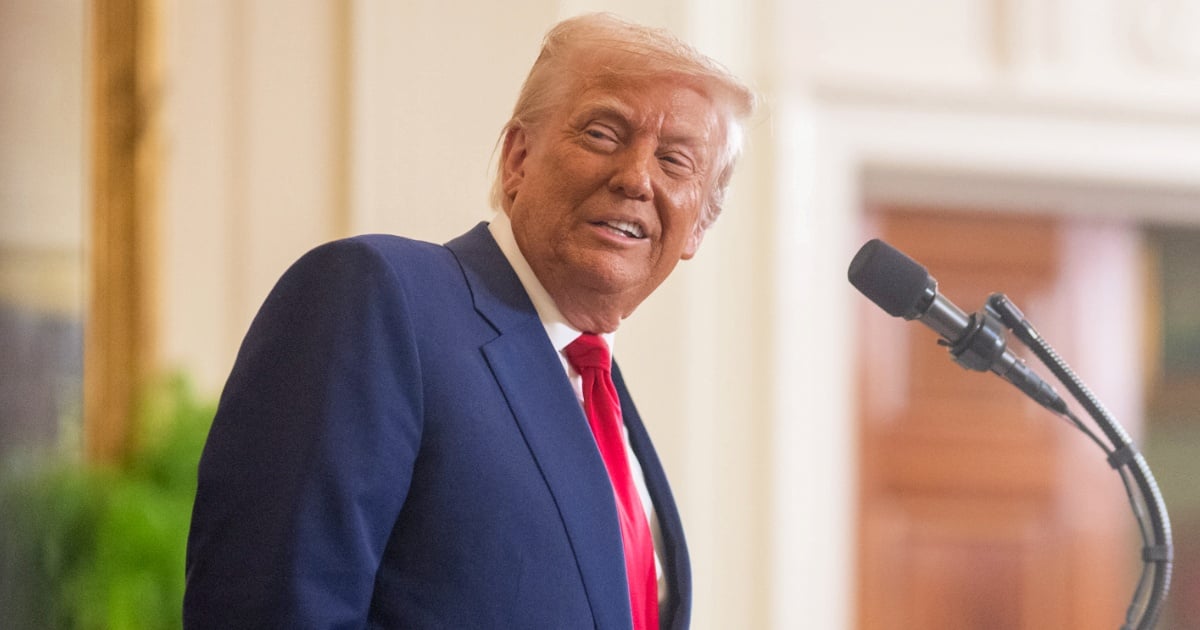On Wednesday, President Donald Trump announced a significant hike in tariffs on Chinese imports, raising them from 104% to 125% effective immediately. Simultaneously, he declared a 90-day pause for countries that have refrained from retaliating against the global tariffs he announced on April 2. Trump made the announcement on his platform, Truth Social, justifying his decision with sharp criticisms of China's trade practices.
"Based on the lack of respect China has shown towards global markets, I am hereby increasing the tariff applied to China by the United States of America to 125%, effective immediately," Trump stated. He also warned Beijing that the era of exploiting trade with the U.S. and other nations was coming to an end. "At some point, hopefully soon, China will realize that the days of taking advantage of the U.S. and others are neither sustainable nor acceptable," he added.
This announcement came after China declared an increase in tariffs to 84% in response to the 104% initially announced by the Trump Administration just a day earlier.
A Temporary Relief for Certain Nations
In a parallel move, Trump announced a temporary 10% tariff reduction for over 75 countries that have abstained from retaliating against the United States. The European Union, which announced its own tariff hikes against the U.S. on the same day, is not expected to be part of this group. According to Trump, the pause is in the interest of these countries seeking a negotiated solution to various trade disputes.
"Contrary to others, over 75 countries have reached out to U.S. representatives, including the Departments of Commerce, Treasury, and the United States Trade Representative (USTR), to negotiate solutions regarding trade issues, trade barriers, tariffs, monetary manipulation, and non-monetary barriers," Trump explained. "Since these countries, upon my firm suggestion, have not retaliated in any form against the United States, I have authorized a 90-day PAUSE, with a substantially reduced reciprocal tariff of 10%, also effective immediately," the president detailed.
Wall Street's Enthusiastic Response to Trump's Announcement
The stock markets responded swiftly to Trump's announcement, with a significant surge in major indices. The S&P 500 jumped 6.0%, closing at 5,281.44 points, reversing a downward trend that had been in place since the initial tariff measures were implemented during the previous week's "Liberation Day," as the president termed it. Investors welcomed the temporary relief for global trade, although uncertainty about future White House moves in international economic policy remains.
China's Accusation Against the U.S. at the World Trade Organization
Simultaneously, China accused the United States at a World Trade Organization (WTO) meeting on Wednesday of violating international trade rules and undermining the multilateral system with its so-called reciprocal tariffs. The Chinese delegation argued that Trump's widespread tariff increases do not adhere to a principle of "reciprocity" but instead prioritize U.S. interests at the expense of other nations' legitimate rights.
They also noted that the United States has historically been a major beneficiary of the multilateral trade system and criticized the focus on trade deficits or surpluses in goods, calling this perspective misleading.
Internal Provocations and Rising Tensions
During a speech on Tuesday to the National Republican Congressional Committee (NRCC), President Trump boasted about his aggressive tariff policy, claiming that foreign leaders "kiss his ass" to secure trade deals. "They are dying to make a deal. 'Please, I'll do anything, sir, I'll do anything,'" he mocked, imitating the pleading voices of leaders who, according to him, are desperate for favorable trade conditions with the U.S.
He also took a direct shot at Republicans questioning his trade leadership: "And then I see some rogue Republicans say Congress should handle the negotiations. Look, you don't negotiate like I negotiate," he declared defiantly. These statements have deepened divisions within the Republican Party, with several senators now advocating for legislation to limit the president's authority to impose tariffs unilaterally, viewing it as an abuse of executive power.
Frequently Asked Questions about U.S.-China Trade Tariffs
Why did President Trump increase tariffs on China?
President Trump increased tariffs on China to 125% citing China's lack of respect towards global markets and abuses in trade practices.
What is the purpose of the 90-day pause for some countries?
The 90-day pause is intended to provide a window for over 75 countries that have not retaliated against U.S. tariffs to negotiate solutions to various trade disputes.
How did Wall Street react to Trump's tariff announcement?
Wall Street reacted positively, with the S&P 500 jumping 6.0% as investors welcomed the temporary relief in global trade tensions.
